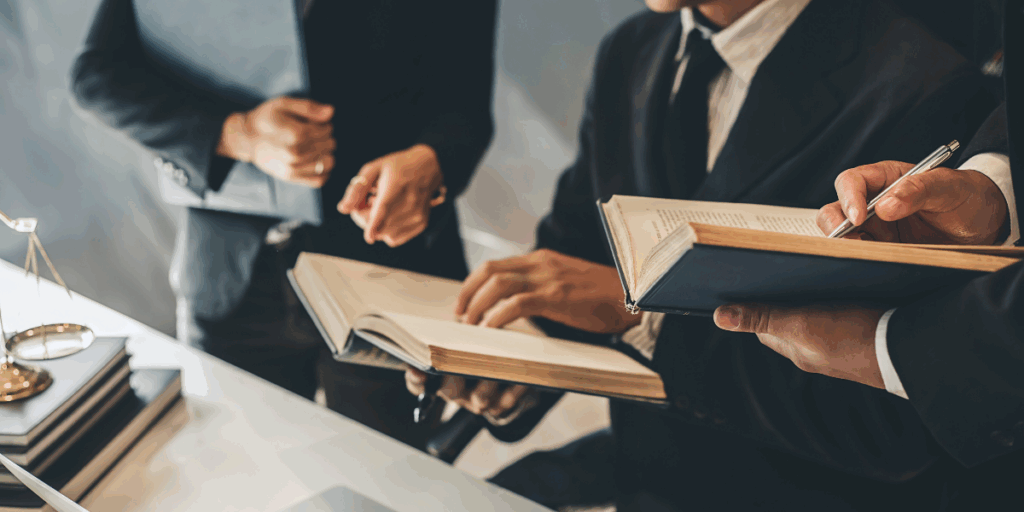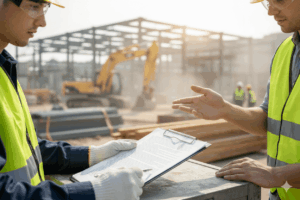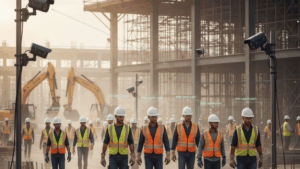Expert technical assistance consists of the specialized monitoring by a professional indicated by one of the parties (plaintiff or defendant) during a judicial expertise. The expert, appointed by the judge, is responsible for the official court report, while the technical assistant supports the conduct of expert work and offers his own technical analysis.
This service is indispensable in actions that involve complex elements such as engineering, architecture, economy, accounting, civil works, corporate, business mergers, labor issues, among others.
Although it is not a decision, the opinion elaborated by this professional may have great weight in the judge's decision, especially if it demonstrates solid and supported grounds in current technical norms and legislation.
When and why is it necessary to hire?
Technical assistance becomes particularly important when it is likely that the expert result significantly influences the outcome of the process. This is common in complaints involving:
- Structural conditions of buildings;
- Project failures or errors;
- Temporary stoppages or suspensions of the contract;
- Different conditions from those foreseen in the soil;
- Change in contract adjustments indexes;
- Price inflation in critical inputs and exchange rate variations;
- Lack or delays of payments;
- Legislative or regulatory changes that directly impact costs or schedule;
- Sales of property/real estate;
- Logistics chain problems;
- Contractual fines and penalties;
- Economic and financial imbalance;
- Impacts and delays on the schedule;
- Risk of accidents (dangerousness);
Having a technical assistant is an effective way to protect against possible or partial conclusions in the expert report. The professional works from the initial phase, proposing requirements and technical questions directed to the judicial expert until the time of drafting a counterproof, when necessary.
Main functions of the technical assistant?

The technical assistant has direct responsibility in defending the technical interests of the party that hired him. Among its main attributions are:
- Process study and preliminary analyzes of data and documents presented;
- Preparation of technical questions that must be answered by the judicial expert;
- Elaboration of suggestion of responses from technical questions in support of the expert;
- Participation at the time of expertise, following the survey and recording divergent grounds;
- Issuance of technical opinion, either to agree, complement or disagree with expert conclusions;
- Critical analysis of unfavorable reports, offering the technical subsidies necessary for challenges.
In many cases, especially in technical expertise involving engineering, economy, accounting, health or environmental risks, the technical assistant also acts as a technical translator between the specific terms of the area and the legal vocabulary, clearly transmitting the facts to the lawyer, the judge and the client.
Differences between the judicial expert and the technical assistant?
Although both act on technical expertise, their functions and origins in the process are distinct:
| Criterion | Judicial expert | Technical assistant |
|---|---|---|
| Appointment | Made by the judge | Indicated by one of the parts of the process |
| Objective | Present impartial technical report | Defend, technically the part that hired you |
| Proceedings in the process | Acts as a direct assistant to justice | Acts as technical support from the parties |
| Influence on the sentence | High | Average, but fundamental for counter-argumentation |
| Participation in Expertise | Conducts the technical survey | Accompanies, observes and opines technically |
LEGAL EXPERT ASSISTANCE BOARD
The figure of the technical assistant is clearly foreseen in the Code of Civil Procedure (CPC), Article 465, which disciplines the expert evidence and the possibility of technical manifestation of the parties. In addition, Article 420 defines that expert evidence may be indispensable when the evaluation of the facts requires specialized technical or scientific knowledge.
During expertise, procedures must follow specific legislation, such as the regulatory rules of Ordinance 3.214/78, the CLT and Standards of ABNT (Brazilian Association of Technical Standards).
Especially in work processes, proper technical support can ensure better defense conditions based on material evidence and objective parameters.
Reaction to unfavorable reports
The report of the judicial expert does not always appeal to the party that hired the technical assistant. In these cases, the professional fulfills a decisive role in the elaboration of a contestatory technical opinion or critical report, pointing out methodological failures, inconsistencies of analysis or incorrecting of legal and technical interpretation. This opinion can be:
- Agreement: When the content of the expert report validates;
- Partially agreeing: when it accepts part of the conclusions, but presents caveats or complementary information;
- Discording: When it identifies substantial errors that compromise the conclusion of the judicial expert.
After that, the judge may require further clarifications from both the official expert and the technical assistants.
How much does technical assistance cost in judicial expertise?
The hiring values of a technical assistant vary widely, according to the complexity of the expertise, the area of expertise and the prestige of the company or professional.
For a better understanding of your process and receive a personalized proposal, contact the exxata professionals.
Why can this service change the course of the process?
The correct calculation of technical facts may be decisive for the sentence. In a process involving hazardousness, for example, the presence of a technical assistant can prevent the company from being improperly convicted due to the misinterpretation of the risk environment.
By offering a technically grounded version and supported by laws and standards, the technical assistant expands the robustness of the defense or prosecution, balancing the technical-expert game and strengthening the lawyers' argument.
Information is power in court!
Technical assistance in judicial expertise is a crucial support for any process involving technical assessment. Whether to protect labor interests, evaluate constructive failures or contest environmental conditions, the presence of a qualified professional expands the chances of a fair decision in court.
Hiring a specialized advisory, with a history of action and multidisciplinary team, can represent a huge competitive advantage in the judicial battle. After all, in increasingly technical disputes, those who dominate the information gain ground.
See also:
- Strategic Contract Management: Preventive, Proactive, and Reactive Actions for Economic and Financial Balance
- NR 18 and Occupational Safety: The Essential Guide to Risk Management in Civil Construction
- Strategies for Effective Contract Monitoring in Construction
- How to Write a Daily Works Report (RDO) in an Objective and Strategic Way
- What is Equity and How Does it Relate to Valuation?




